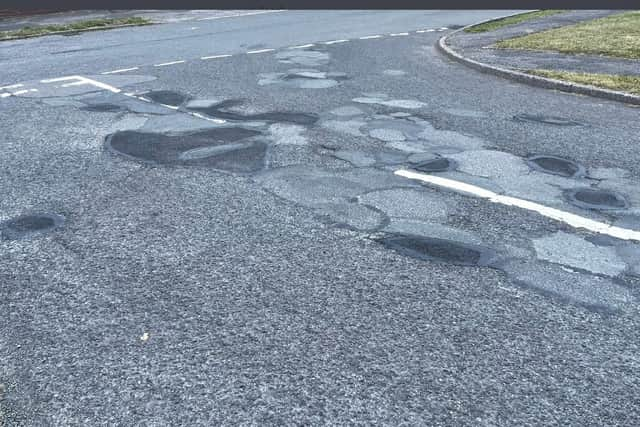124 roads in Derbyshire to undergo resurfacing next month
and live on Freeview channel 276
The scheme will cover 124 residential roads using a process called micro-asphalt: a liquid mixture of stone, cement, and bitumen which seals the roads and prevents further damage.
It will be laid in two applications on top of the existing road to create a new, smooth surface. The repair is able to be completed in around 20 minutes and it is hopes that delays and inconvenience for motorists will be minimsed.
Advertisement
Hide AdAdvertisement
Hide AdThe process does rely on dry weather so last-minute changes to the resurfacing schedule may have to be made.


Councillor Charlotte Cupit, cabinet member for highways assets and transport said: “Our £1 million micro-asphalt programme will help us to get weather prepared for the colder, wintry weather by sealing existing road surfaces against the worst of the rain and frost. This is part of our ongoing, three-year, £120 million investment in the county’s roads and pavements.
“The process is fast, helping to minimise delays for local road users. We’ve carefully identified the 124 roads for repair, using feedback from residents and our own surveys, to make sure we target our resources in the most effective way.
“The new surfacing will be much smoother and offer improved skid resistance, providing a safety benefit for local road users.
Advertisement
Hide AdAdvertisement
Hide AdLeaflets delivered door to door and temporary road warning signs will be used to inform residents living in areas where the micro-asphalt repairs will be carried out.
The programme of resurfacing will start on September 6 and is expected to finish in late-October.
To help minimise delays and inconvenience, residents are asked to:
- park cars on a neighbouring street to avoid any last-minute delays to the repair programme
- avoid any sudden braking or steering manoeuvres on the new surface until it has fully dried
- take care at junctions where the give way and centre line road markings have been replaced
- try to avoid walking on the surface until it has dried - white spirit can be used to remove any bitumen from shoes or a bicycle
- take extra care driving on the new surface until it has fully dried